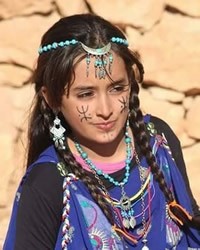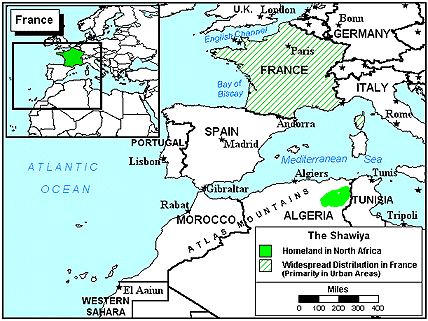Most of France's Berbers, including the Shawiyas, live in Paris. The majority of the Shawiya Berbers migrated from Algeria, hoping to live in a peaceful environment where they could earn an honest living.
In Paris, about one out of three cafes are owned by Berbers from northern Algeria. In addition, the majority of Paris taxi drivers and many small grocery stores are owned by Berbers. Believers need to take every opportunity to buy at Berber grocery stores and eat at Berber owned cafes to earn the right to engage Berbers with the knowledge of the only savior.
Berbers prefer to be known as “Imazighen,” which means “free people.” When the Arabs invaded their territories in the 7th century, they were forced to give up their religion based on the worshiping of multiple gods and convert to Islam. For that reason, some view rebelling against Islam as being a way of expressing themselves as separate from the more powerful Arabs. Most Shawiya Berbers in France have a secularized adherence to Islam and often clash with Islamic fundamentalists.
Most Berbers in France are friendly; however, the majority do not accept any pressure to change their views when it comes to religion.
Pray that believers would have the love and perseverance to reach out to Shawiya Berbers as Christ's ambassadors.
Pray that Berbers would understand and embrace the abundant life offered by the loving Lord.
Pray there would soon be a movement to Christ among the Shawiya Berbers in France.
Scripture Prayers for the Berber, Shawiya in France.
| Profile Source: Joshua Project |











